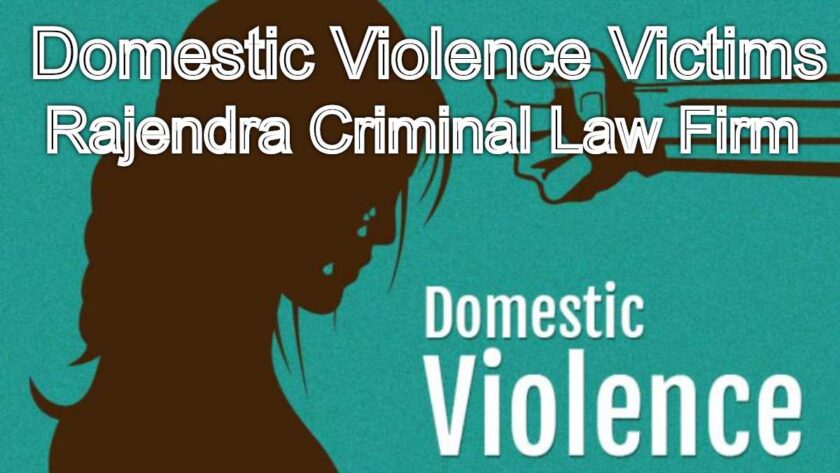Domestic violence is a horrifying reality that shatters families and scars lives. However, you are not alone. If you are experiencing domestic violence, there is help available. This article, brought to you by Rajendra Criminal Law Firm, a team dedicated to protecting victims’ rights, will explore the legal aid options available to you in India.
Shielding Families: Legal Aid for Domestic Violence Victims with Rajendra Criminal Law Firm
Understanding Domestic Violence
Domestic violence encompasses any physical, emotional, or sexual abuse that occurs within a domestic relationship. This includes acts by a spouse, former spouse, partner, or any other member of your household. It can take many forms, such as:
- Physical abuse: Hitting, kicking, shoving, or any other form of physical harm.
- Emotional abuse: Threats, insults, humiliation, or controlling behavior.
- Sexual abuse: Forced sexual activity, marital rape, or any other form of sexual assault.
- Financial abuse: Denying access to money, controlling finances, or sabotaging your ability to be financially independent.
The Right to Safety and Support
No one deserves to live in fear. You have the fundamental right to safety and support. The Indian legal system provides various legal remedies for domestic violence victims. The Protection of Women from Domestic Violence Act, 2005 (PWDVA) is a landmark legislation that empowers victims to seek protection and justice.
Legal Aid Options for Domestic Violence Victims
Taking legal action can feel overwhelming, especially during a difficult time. Thankfully, various legal aid options can assist you throughout the process. Here’s an overview of some key resources:
- Free Legal Aid Services: The government provides free legal aid to victims of domestic violence. You can contact your local District Legal Services Authority (DLSA) for assistance. They will connect you with a lawyer who can advise you on your legal options and represent you in court, if necessary.
- NGOs and Women’s Helpline: Several NGOs and organizations work tirelessly to support domestic violence victims. They offer legal advice, counseling, and shelter facilities. You can reach out to the National Women’s Helpline (181) for immediate assistance and information on local support services.
- Private Lawyers: If you prefer individual representation, you can consult a private lawyer specializing in domestic violence cases. While there might be associated costs, some lawyers offer pro bono services or work on a sliding scale based on your income.
Rajendra Criminal Law Firm: Standing with You
At Rajendra Criminal Law Firm, we understand the profound impact of domestic violence. Our team of experienced criminal lawyers is deeply committed to protecting the rights and safety of domestic violence victims. We offer:
- Compassionate and Confidential Support: We understand the sensitivity of your situation and prioritize your well-being. We maintain complete confidentiality throughout the legal process.
- Guidance on Legal Options: Our lawyers will thoroughly explain your legal rights and help you navigate the available options, such as seeking protection orders, pursuing divorce, or obtaining child custody arrangements.
- Representation in Court: If you choose to pursue legal action, we will represent you in court with dedication and expertise.
Taking the First Step
Seeking help can be the most important step towards a safer future. Here are some resources to get you started:
- National Legal Services Authority of India: https://nalsa.gov.in/
- National Women’s Helpline: 181
- Rajendra Criminal Law Firm: Contact us for a free consultation.
FAQs: Legal Aid for Domestic Violence Victims
We understand you might have questions. Here are some frequently asked questions:
- What if I can’t afford a lawyer? You can access free legal aid through the DLSA or seek assistance from NGOs.
- What happens if I file a complaint? The police will investigate and may file charges against the abuser. You can also seek protection orders to ensure your safety.
- What evidence do I need? Medical records, police reports, witness statements, and photos can be used as evidence.
- Can I keep my identity confidential? Yes, courts often have provisions to protect the identity of victims in domestic violence cases.
Remember, You Are Not Alone
Domestic violence is a serious issue, but there is hope and support available. Reach out for help. With legal resources and the support of dedicated professionals, you can overcome this challenge and build a safer future for yourself and your loved ones.
Read More
- Standing with Victims: Vigorous Representation in Rape Cases
- Empowering Survivors: Compassionate Legal Support for Sexual Assault Cases
- Securing Your Freedom: Effective Defense against Kidnapping Charges
- Facing Arson Allegations? Trust Our Experienced Legal Team
- Your Defense Starts Here: Skilled Advocates for Burglary Charges
- National Legal Services Authority of India (NALSA):





